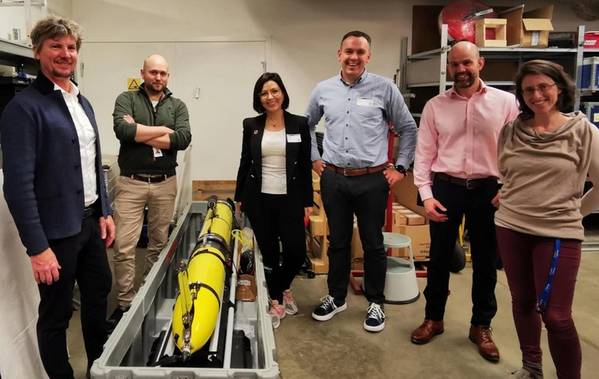
Subsea services provider DeepOcean has signed a collaboration deal with Akvaplan-niva regarding the potential utilization of remotely operated vehicles (ROVs) and unmanned glider vehicles (USVs) to perform environmental studies for offshore wind and oil and gas developments.
Akvaplan-niva is a subsidiary of the Norwegian Institute for Water Research (NIVA). The company provides advisory services, research and development, and analytical services for all water related topics.
DeepOcean and Akvaplan-niva plan to work together, combining the field operations of DeepOcean’s autonomous vehicles – ROVs, USVs, and autonomous inspection drones – with Akvaplan-niva’s environmental data collection services.
The partnership also aims to use Akvaplan-niva’s unmanned autonomous glider vehicles commercially for environmental studies.
Further, DeepOcean will share environmental data collected during the company’s ROV operations with Akvaplan-niva, for use by the wider research community.
"By integrating environmental sensors with the vehicles, and streaming the data to a powerful cloud-based processing system, the parties will investigate the opportunity to utilize ROVs, USVs, drones, and gliders to perform ecosystem and environmental studies. The type of selected sensors allows for harvesting physical, biogeochemical, chemical, or biological data to get a high-resolution understanding of the marine ecosystem structure and functioning in near real-time," DeepOcean.
"Both the offshore wind and offshore oil and gas industry could benefit from even more cost-efficient environmental assessment services. Combining sensor technology with unmanned and autonomous vessels could be one way of solving this. Compared to today’s solutions, this approach can substantially reduce use of fossil fuels and associated CO2 emissions,” says Andries Ferla, Ocean Solutions & Technology Director at DeepOcean.
“Today's advanced technology in robotics and digital solutions allow the convergence between the subsea operations and environmental services. The advantages for customers are multiple, it will reduce costs, CO2 emissions, and personnel risk, and it will increase data resolution drastically," says Dr. Lionel Camus, Manager Digital Solutions at Akvaplan-niva.